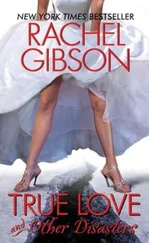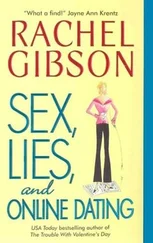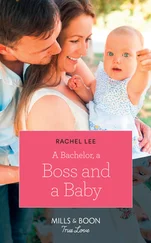Rachel Cusk - Aftermath - On Marriage and Separation
Здесь есть возможность читать онлайн «Rachel Cusk - Aftermath - On Marriage and Separation» весь текст электронной книги совершенно бесплатно (целиком полную версию без сокращений). В некоторых случаях можно слушать аудио, скачать через торрент в формате fb2 и присутствует краткое содержание. Год выпуска: 2012, Издательство: Farrar, Straus and Giroux, Жанр: Публицистика, Биографии и Мемуары, на английском языке. Описание произведения, (предисловие) а так же отзывы посетителей доступны на портале библиотеки ЛибКат.
- Название:Aftermath: On Marriage and Separation
- Автор:
- Издательство:Farrar, Straus and Giroux
- Жанр:
- Год:2012
- ISBN:нет данных
- Рейтинг книги:3 / 5. Голосов: 1
-
Избранное:Добавить в избранное
- Отзывы:
-
Ваша оценка:
- 60
- 1
- 2
- 3
- 4
- 5
Aftermath: On Marriage and Separation: краткое содержание, описание и аннотация
Предлагаем к чтению аннотацию, описание, краткое содержание или предисловие (зависит от того, что написал сам автор книги «Aftermath: On Marriage and Separation»). Если вы не нашли необходимую информацию о книге — напишите в комментариях, мы постараемся отыскать её.
Aftermath: On Marriage and Separation — читать онлайн бесплатно полную книгу (весь текст) целиком
Ниже представлен текст книги, разбитый по страницам. Система сохранения места последней прочитанной страницы, позволяет с удобством читать онлайн бесплатно книгу «Aftermath: On Marriage and Separation», без необходимости каждый раз заново искать на чём Вы остановились. Поставьте закладку, и сможете в любой момент перейти на страницу, на которой закончили чтение.
Интервал:
Закладка:
Rachel Cusk
Aftermath: On Marriage and Separation
To RCJ, wise soldier
Zeus has led us on to know,
the Helmsman lays it down as law
that we must suffer, suffer into truth.
We cannot sleep, and drop by drop at the heart
the pain of pain remembered comes again,
and we resist, but ripeness comes as well.
From the gods enthroned on the awesome rowing-bench
there comes a violent love.
— Aeschylus, OresteiaAFTERMATH
Recently my husband and I separated, and over the course of a few weeks the life that we’d made broke apart, like a jigsaw dismantled into a heap of broken-edged pieces.
Sometimes the matrix of a jigsaw is undetectable in the assembled picture; there are champion jigsaw-makers who pride themselves on such things, but mostly you can tell. The light falls on the surface indentations — it’s only from far away that the image seems complete. My younger daughter likes doing jigsaws. The older one does not: she builds card houses in whose environs everyone must remain silent and still. I see in these activities differing attempts to exert control, but I am struck too by the proof they provide that there is more than one way of being patient, and that intolerance can take many forms. My daughters take these variations in temperament a little too seriously. Each resents the opposing tendency in the other: in fact, I would almost say that they pursue their separate activities as a form of argument. An argument is only an emergency of self-definition, after all. And I’ve wondered from time to time whether it is one of the pitfalls of modern family life, with its relentless jollity, its entirely unfounded optimism, its reliance not on God or economics but on the principle of love, that it fails to recognise — and to take precautions against — the human need for war.
‘The new reality’ was a phrase that kept coming up in those early weeks: people used it to describe my situation, as though it might represent a kind of progress. But it was in fact a regression: the gears of life had gone into reverse. All at once we were moving not forwards but backwards, back into chaos, into history and prehistory, back to the beginnings of things and then further back to the time before those things began. A plate falls to the floor: the new reality is that it is broken. I had to get used to the new reality. My two young daughters had to get used to the new reality. But the new reality, as far as I could see, was only something broken. It had been created and for years it had served its purpose, but in pieces — unless they could be glued back together — it was good for nothing at all.
My husband believed that I had treated him monstrously. This belief of his couldn’t be shaken: his whole world depended on it. It was his story, and lately I have come to hate stories. If someone were to ask me what disaster this was that had befallen my life, I might ask if they wanted the story or the truth. I might say, by way of explanation, that an important vow of obedience was broken. I might explain that when I write a novel wrong, eventually it breaks down and stops and won’t be written any more, and I have to go back and look for the flaws in its design. The problem usually lies in the relationship between the story and the truth. The story has to obey the truth, to represent it, like clothes represent the body. The closer the cut, the more pleasing the effect. Unclothed, truth can be vulnerable, ungainly, shocking. Over-dressed it becomes a lie. For me, life’s difficulty has generally lain in the attempt to reconcile these two, like the child of divorce tries to reconcile its parents. My own children do that, forcing my husband’s hand into mine when we’re all together. They’re trying to make the story true again, or to make the truth untrue. I’m happy enough to hold his hand, but my husband doesn’t like it. It’s bad form — and form is important in stories. Everything that was formless in our life together now belongs to me. So it doesn’t trouble me, doesn’t bother me to hold his hand.
After a while time stopped going backwards. Even so, we had regressed quite a long way. In those few weeks we had undone everything that led to the moment of our separation; we had undone history itself. There was nothing left to be dismantled, except the children, and that would require the intervention of science. But we were before science: we had gone back to something like seventh-century Britain, before the advent of nationhood. England was in those days a country of compartments: I remember, at school, looking at a map of the early medieval heptarchy and feeling a kind of consternation at its diffusity, its lack of centralised power, its absence of king and capital city and institution. Instead there were merely regions whose names — Mercia, Wessex — fell effeminately on the ears, and whose ceaseless squabblings and small, laborious losses and gains seemed to lack a driving, unifying force that I might, had I cared to think about it, have identified as masculine.
Our history teacher, Mrs Lewis, was a woman of size and grace, a type of elephant-ballerina in whom the principles of bulk and femininity fought a war of escalation. The early medieval was her period: she had studied at Oxford, and now here she was in the classroom of our mediocre Catholic girls’ school, encased in a succession of beige tailored outfits with co-ordinating heels from which it seemed her mighty pink form could one day startlingly emerge, like a statue from its dust sheets. The other thing we knew about her, from her name, was that she was married. But how these different aspects of Mrs Lewis connected we had no idea. She gave great consideration to Offa of Mercia, in whose vision of a unified England the first thrust of male ambition can be detected, and whose massive earthwork, Offa’s Dyke, still stands as a reminder that division is also an aspect of unification, that one way of defining what you are is to define what you are not. And indeed historians have never been able to agree on the question of whether the dyke was built to repel the Welsh or merely to mark the boundary. Mrs Lewis took an ambivalent attitude to Offa’s power: this was the road to civilisation, sure enough, but its cost was a loss of diversity, of the quiet kind of flourishing that goes on where things are not being built and goals driven towards. She herself relished the early Saxon world, in which concepts of power had not yet been reconfigured; for in a way the Dark Ages were themselves a version of ‘the new reality’, were the broken pieces of the biggest plate of all, the Roman Empire. Some called it darkness, the aftermath of that megalomaniacal all-conquering unity, but not Mrs Lewis. She liked it, liked the untenanted wastes, liked the monasteries where creativity was quietly nurtured, liked the mystics and the visionaries, the early religious writings, liked the women who accrued stature in those formless inchoate centuries, liked the grassroots — the personal — level on which issues of justice and belief had now to be resolved, in the absence of that great administrator civilisation.
The point was that this darkness — call it what you will — this darkness and disorganisation were not mere negation, mere absence. They were both aftermath and prelude. The etymology of the word ‘aftermath’ is ‘second mowing’, a second crop of grass that is sown and reaped after the harvest is in. Civilisation, order, meaning, belief: these were not sunlit peaks to be reached by a steady climb. They were built and then they fell, were built and fell again or were destroyed. The darkness, the disorganisation that succeeded them had their own existence, their own integrity; were betrothed to civilisation, as sleep is betrothed to activity. In the life of compartments lies the possibility of unity, just as unity contains the prospect of atomisation. Better, in Mrs Lewis’s view, to live the compartmentalised, the disorganised life and feel the dark stirrings of creativity, than to dwell in civilised unity, racked by the impulse to destroy.
Читать дальшеИнтервал:
Закладка:
Похожие книги на «Aftermath: On Marriage and Separation»
Представляем Вашему вниманию похожие книги на «Aftermath: On Marriage and Separation» списком для выбора. Мы отобрали схожую по названию и смыслу литературу в надежде предоставить читателям больше вариантов отыскать новые, интересные, ещё непрочитанные произведения.
Обсуждение, отзывы о книге «Aftermath: On Marriage and Separation» и просто собственные мнения читателей. Оставьте ваши комментарии, напишите, что Вы думаете о произведении, его смысле или главных героях. Укажите что конкретно понравилось, а что нет, и почему Вы так считаете.












